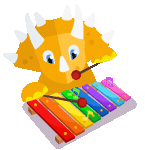Learning Spanish Through Play: How It Boosts Retention
Why Play Matters
Research from the Lego Foundation and Harvard Graduate School of Education shows that playful learning stimulates deeper cognitive processing, leading to stronger memory traces and problem‑solving skills. When children laugh, move, and make choices, dopamine and endorphins prime the brain for long‑term storage perfect conditions for new Spanish words.
1. Role‑Play Scenarios
Set up a pretend café. One child becomes the server using phrases like ¿Qué desea? while others order un zumo de naranja. Acting out vocabulary embeds meaning far better than rote drills.
2. Movement Games
• Simón dice (Simón says) great for verbs and body parts.
• Color hopscotch jump on chalked squares shouting rojo, azul, verde.
3. Story Dice
Create or print dice with pictures (astronaut, gato, montaña). Kids roll and weave mini‑stories in Spanish, forcing spontaneous sentence creation.
4. Scavenger Hunts
Hide labelled objects around the room. Players race to find la cuchara or el libro. Speed plus tactile search cements both spelling and meaning.
5. Song & Dance
Circle dances to Rockalingua tunes pair rhythm with lyrics, leveraging the “music effect” on memory consolidation.
6. DIY Board Games
Rewrite squares of classic games (e.g., Chutes and Ladders) in Spanish: Avanza tres espacios; Pierdes un turno. Repetition happens naturally each playthrough.
Dinolingo Boost
The Dinolingo gamifies every lesson kids earn surprise badges after each interactive activity, turning practice into play. Offline kits include printable bingo boards and charade cards that extend digital fun to family game night.
Quick Parent Tips
- Keep rules simple so language, not gameplay complexity, is the focus.
- Rotate games weekly to maintain novelty and motivation.
- Snap photos of play sessions; ask kids to caption them in Spanish for extra writing practice.
Final Thoughts
When Spanish feels like play, practice hours multiply without complaint and memory gains follow. Blend homemade role‑plays, movement games, and Dinolingo’s badge‑powered lessons, and you’ll see vocabulary stick long after the game box closes.
Sources
Start Learning a New Language Today!
Best Language App for Kids.
7-day free trial. Then only $19/month. Cancel anytime.
